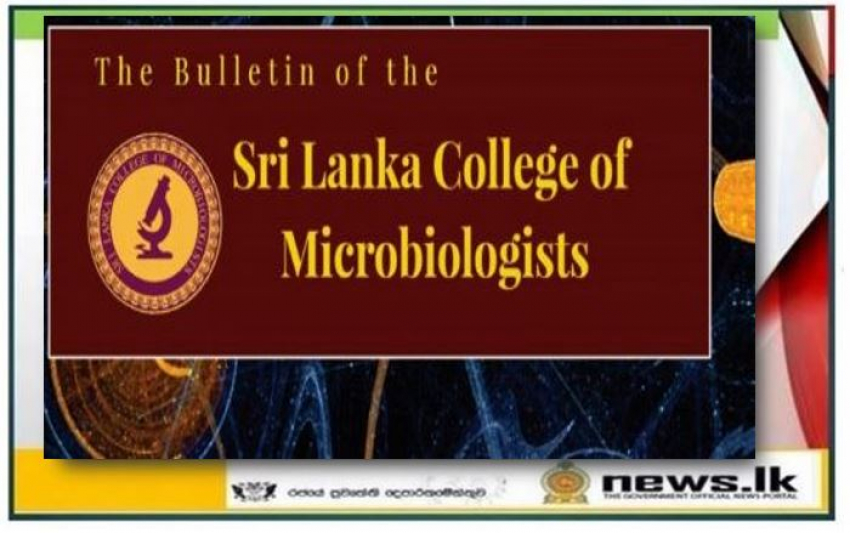Firstly, we would like to bring the attention of the public to “decontamination chambers”. There are many offers to donate these to hospitals and other public places, including the Ministry of Health. Many places have installed these chambers at their entrances/exits, making it mandatory for everyone to walk through them. These chambers contain various agents to spray on people including alcohol, chlorine compounds, ozonated water, soapy water and Ultra Violet (UV) radiation.
We would like to draw your attention to the views of the World Health Organization on this practice.
“We strongly advise that spraying of individuals or groups is NOT recommended under any circumstances. Spraying an individual or group with chemical disinfectants or detergents is physically and psychologically harmful and does not limit the spread of COVID-19. Even if a person is infected with the COVID-19 virus, spraying the external part of the body does not kill the virus inside the body and may worsen the clinical condition of the individual.” For alcohol or other disinfectants to be effective, they need to be present in adequate amount for a given period of time (contact time). The nature of chambers does not sufficiently provide this.
According to U.S. Food and Drug Administration (FDA) for ozone to be effective in destroying harmful bacteria, it must be present at a concentration above levels considered safe for humans.
The main mode of transmission of COVID-19 is by contaminated hands touching the face (eyes, nose, mouth ). Therefore, what needs to be done is to sanitize hands rather than try to sanitize the whole body in order to prevent transmission of this virus. Action of alcohol and other chemical disinfectants in these chambers is unlikely to achieve this function. Further, there is a significant fire hazard and there is wastage of alcohol and other disinfectants in large quantities when used inside these chambers, when they can be put to much better use in preparing hand sanitizers and for environmental disinfection in healthcare and other high risk environments.
In addition, these chemical disinfectants can have various adverse effects on humans. In particular, spraying of chlorine on individuals can lead to irritation of eyes and skin, bronchospasm due to inhalation, and potential gastrointestinal effects such as nausea and vomiting. Inhaled ozone can damage the lungs, may worsen chronic respiratory diseases like asthma and compromise the ability of the body to fight respiratory infections. Excessive exposure to UV light may put a user at risk of eye injury, skin burns or even an increased risk of skin cancer. To date, the FDA has not authorized any products using ozone gas or ultraviolet (UV) light even to clean, disinfect or sanitize inanimate objects.
Prepared by Sri Lanka College of Microbiologists - 30.04.2020 Page 2 Secondly, we would like to bring attention to the practice of spraying disinfectants to large outdoor areas such as streets and public areas. The SLCM is of the view that disinfectants should be sprayed or applied only on surfaces that are highly or frequently touched by public, such as hand railings, door knobs, poles on transit vehicles, elevator buttons, park/ street benches etc. It has been proven that the virus can survive from hours to days on these contaminated surfaces.
However, spraying of disinfectants in large quantities into the environment can cause environmental pollution, wastage of chemicals, harmful effects on humans as described above and harmful effects on animals and fish. Further, the action of these disinfectants on these outdoor surfaces is not yet evaluated since disinfectants may disintegrate or degrade with exposure to different environmental conditions such as sunlight. Therefore, rather than spraying large quantities of disinfectants on streets and public areas, we suggest that frequently touched surfaces should be wiped down with disinfectant solutions.
Please help prevent transmission of the COVID-19 virus by:
1. Providing universal access to public hand hygiene stations and making their use obligatory on entering and leaving any public or private commercial buildings and any public transport facility.
2. Improving access to hand hygiene facilities and practices in health care facilities
3. Providing alcohol-based hand sanitizers in places where hand washing is practically not possible
4. Promoting cough etiquette and respiratory hygiene.
5. Routine cleaning/ wiping of frequently touched hard surfaces with detergent/disinfectant solution.
6. Promoting social distancing even after the curfew is lifted.
Decontamination chambers and widespread spraying may give a false sense of security and members of the public may pay less attention to hand hygiene, social distancing and cough etiquette /respiratory hygiene which are of paramount importance in our fight against COVID
19. We believe it is our duty to draw the attention of all concerned parties to the side effects of above practices.
Potential Risks Associated With The Use of Ozone and Ultraviolet (UV) Light Products for Cleaning CPAP Machines and Accessories: FDA Safety Communication. FDA Communication
dated 27/02/2020 available at https://www.fda.gov/medical-devices/safety-
communications/potential-risks-associated-use-ozone-and-ultraviolet-uv-light-products- cleaning-cpap-machines-and




















